Tokyo Tech and the University of Melbourne, Australia held the online winter program “Bringing Ideas in Remote Discussion (BIRD)” from February 10 to February 20. The Winter Program started as an exchange program for international students from the University of Melbourne, one of Tokyo Tech’s partner universities, and other universities in and around the Oceania region. Following on from last year, this year’s program was held again as a remote student exchange between the University of Melbourne and Tokyo Tech students. Seven undergraduate students from Tokyo Tech and 14 undergraduate students from the University of Melbourne participated. They were divided into four teams and brought their ideas on the theme of “Technology for Sustainable Food,” with each team presenting their results on the final day.
The BIRD program consisted of four parts: 1) preliminary study for Tokyo Tech students, 2) site visit to Kewpie Corporation, 3) theme-related lectures by Tokyo Tech and University of Melbourne faculty members, and 4) teamwork and presentation of results by participating students.
The major difference from the previous year was the company visit to Kewpie Corporation’s Mayo Terrace. Students from the University of Melbourne took a virtual tour of the facility and were also connected online to Kewpie Corporation’s mayonnaise factory, where they learned about the company’s commitment to “sustainable food and engineering” in society. The combination of face-to-face off-campus education and online education, conducted while taking preventive measures against COVID-19, was well received by the students.
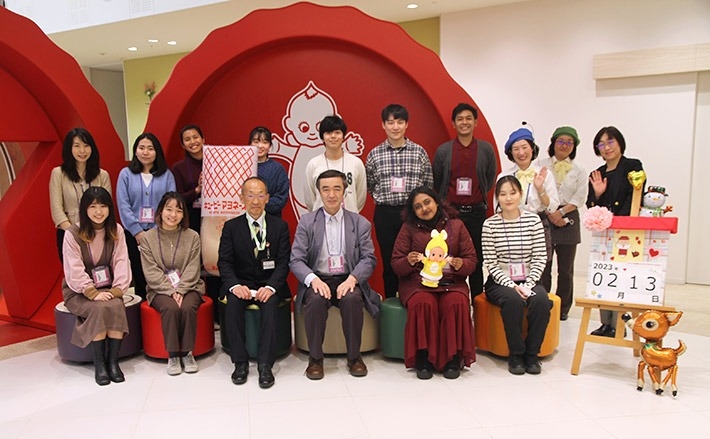
Tokyo Tech students touring facilities of Kewpie Corporations Mayo Terrace
In the first part, students acquired specialized knowledge of “Engineering for Sustainable Food” by attending lectures on “Chemical Engineering” by Professor Sandra Kentish of the University of Melbourne, “Fundamentals of Vacuum Technology and its Application to Food Processing” by Associate Professor Hiroshi Akatsuka of Tokyo Tech’s Laboratory for Zero-Carbon Energy, and “Time Nutrition” by Associate Professor Masaki Takahashi of Tokyo Tech’s Institute for Liberal Arts. They learned that there are diverse academic engineering perspectives to realize sustainable food.
In the second half of the program, 21 students were divided into teams based on four different topics, and tried to invent technologies for “sustainable food” based on what they had learned in the lectures. Six master’s and doctoral course TAs acted as facilitators for the teams’ activities, and they demonstrated excellent leadership so that even students meeting for the first time could get to know each other better. During the cultural exchange time, the students introduced each other to the university campus and the city, and enjoyed singing Japanese songs together, led by those with good singing voices.
On the final day of the 10-day program, each group gave a presentation on a different topic: “Robots and Sustainable Food,” “Urban Local Production for Local Consumption,” “Tomato Cultivation with an Awareness of Energy Issues,” and “AI Technology and Food Loss Reduction,” followed by a lively Q&A session. All participating students received a certificate of completion, and the program came to a close with a sense of accomplishment for having fostered friendships across borders and shared ideas for solving social issues.
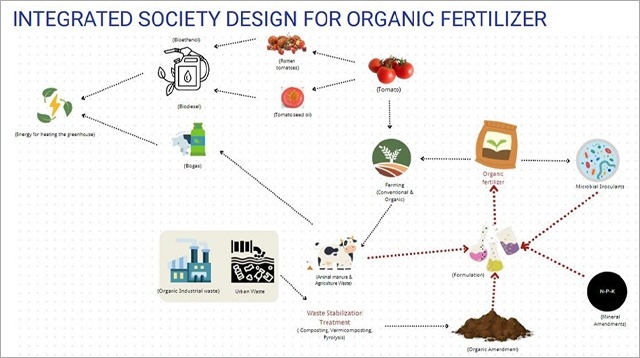
TeamHirameki Hotpot’s presentation: Decarbonizing energy usage in intensive tomato production
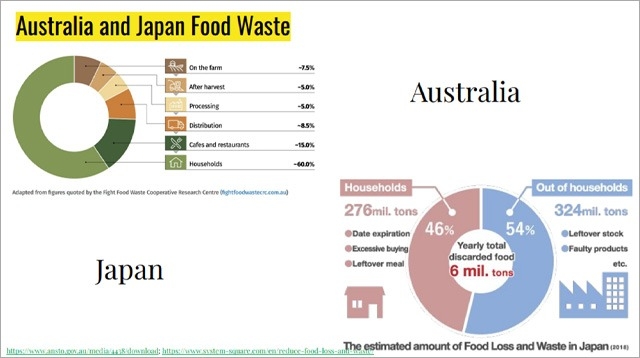
TeamAI technology’s presentaion: Tackle serious food waste issue in Japan and AU
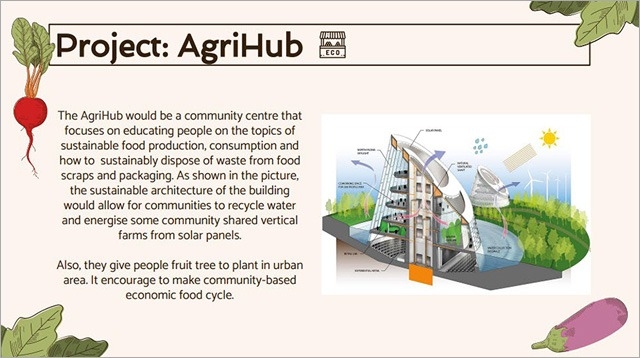
TeamKewpie Kids’s presentation: Local Community / Architectural Development for Sustainable Food
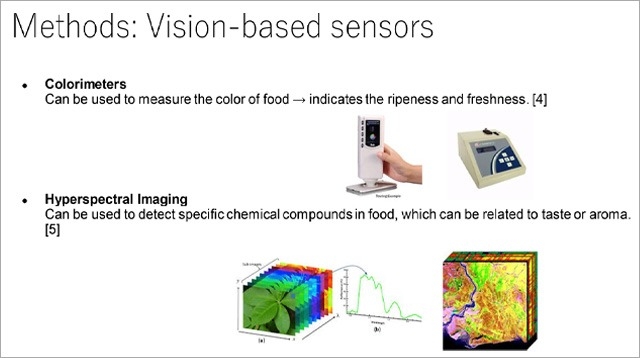
TeamRobotic Grape’s presentation: Sensor-based robotic food quality detection system
Bayarsaikhan Onon (3rd year Undergraduate, Electrical and Electronic Engineering,Tokyo Tech)
Through lectures from professors at Tokyo Institute of Technology and the University of Melbourne, I learned more about the food industry and how current innovations and technologies improve food production and agriculture. Through a site visit to Kewpie, we learned more about its history and food processes. Also, we had a valuable opportunity to ask questions directly to people who work there. Even though it was held only for a few days, this program will be a lifelong memory. Having friendly discussions with Tokyo Tech and Melbourne students and learning from them was a great experience, and thanks to this program I deepened my understanding of food sustainability.
Honor Clark (4th year Undergraduate, Vetinary and Agricultural Science, The University of Melbourne)
The BIRD program with Tokyo Tech was really interesting and inspiring for me. I learned about the debate surrounding sustainable food and how different areas such as AI, design and architecture, energy, and engineering can contribute to making food more sustainable. The TAs and Sensei Saho Kawashima were very knowledgeable, kind, and helpful. The program was a great way to not only learn about peoples’ ideas on sustainable food development, but also to learn about other participants’ cultures. I’m very grateful to have had the opportunity to meet many new people.
Chanon Limpatiyagorn (2nd year Master’s, Veterinary and Agricultural Sciences, The University of Melbourne)
We had lecture sessions as well as group work. My group tackled the topic of robotics for sustainable food, and proposed sensor-based robotic food quality detection systems. I was able to broaden my horizons through lectures and by learning from other students. Hearing everyone’s innovative ideas and how they can be utilized to develop a sustainable system was an enlightening experience. I am thankful to have had the opportunity to participate in this program, and to make new connections and have new encounters.
Lianli Lin (1st year Master’s, Veterinary and Agricultural Science, The University of Melbourne)
I am delighted to have been part of this exciting program and share my passion for technology for sustainable food with like-minded peers from both Tokyo Tech and the University of Melbourne. The program was a great opportunity for me to learn and grow, both personally and professionally. The lectures were so inspiring, providing new avenues to sustainable production by using cutting-edge technologies in food processing and nutritional science. I was also impressed with Kewpie Corporation’s high standards and environmental awareness during our site visit. The program coordinator and all TAs were dynamic, passionate, fun, and very engaging in facilitating so many interesting group discussions and final presentations. I enjoyed every moment of the program. It provides a great opportunity for students from different backgrounds to share their ideas about the future of sustainable production. I would like to express my gratitude for all the efforts in delivering such a great program, and I hope it continues as a wonderful bridge between these two great universities.








